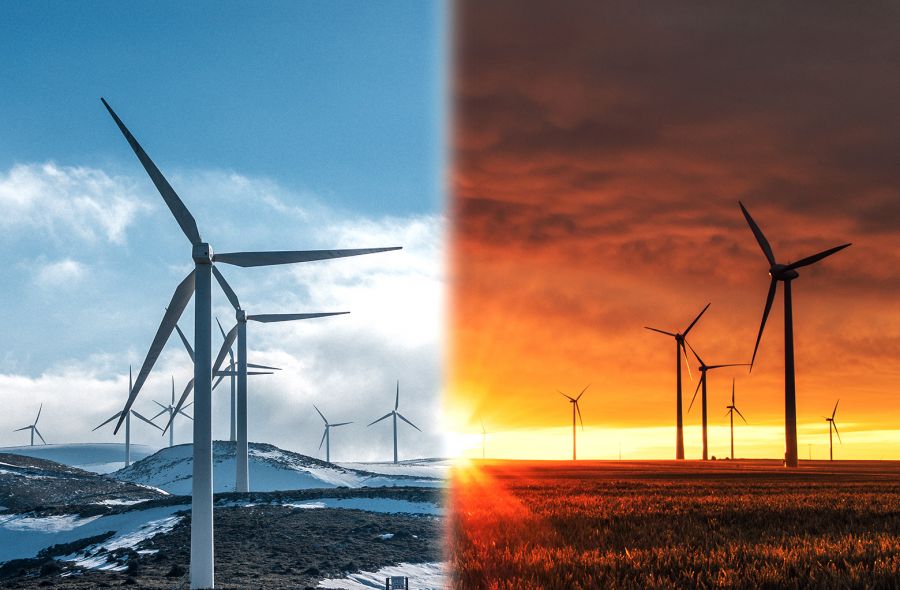May, 2024
San Francisco, USA

In order to deal with the real-world effects of climate change, winemakers are increasingly turning to technology. In some cases, technology is enabling them to deal with unpredictable weather patterns in order to keep delivering the same great wine; in other cases, technology is disrupting the wine industry altogether, leading to new innovations in how wine is packaged, marketed and sold to the end consumer.
One important point to keep in mind is that climate change is truly a global phenomenon, impacting winemakers from Australia to North America, and every point in between. In Australia, for example, recent periods of record heat are already leading to concerns that the warming of local wine regions could be happening much more quickly than anyone anticipated. In France, unexplained extreme freezes are leading to a significant loss of harvests. And in California, winemakers are already grappling with everything from flooding to droughts to forest fires blamed on climate change.
In many ways, that is the negative impact of climate change on the wine industry. However, what about the positive impact of climate change? In this regards, global warming patterns are changing everything that we thought we knew about terroir. Just two decades ago, the assumption was that the wine industry had finally discovered all of the regions in the world where it was possible to make world-class wine. But we’ve already seen the emergence of new wine regions in Sweden, Norway and the Netherlands – three nations in Europe that previously had been considered too cold to make world-class wine. And both China and India have also emerged as potential wine hot spots of the future.
Given all the concern about the pace of global warming happening in the world, it’s perhaps no surprise that winemakers are starting to embrace green, sustainable technologies. It’s no longer out of the ordinary to hear about a winery embracing solar polar, or about winemakers embracing a zero-carbon footprint strategy. It’s not just about embracing a greener planet for the sake of a greener planet – it’s also about using this new, green and sustainable technology to reduce the cost of making wine (i.e. using solar power from the sun to power a winery).
This trend toward wine made with sustainable technologies has a lot of momentum behind it, in part because young millennial wine drinkers have embraced the idea of supporting winemakers who are doing their part to support the environment. A “green” wine complements the concept of supporting organic, natural processes. As a result, being able to advertise a “zero-carbon emission” wine brings with it a lot of marketing credibility.
Climate change is also giving rise to the idea that we might soon experience the end of “vintages” as we know them. If grape growers are at constant risk of having as much as 80 to 90 percent of their vintage wiped out due to floods, droughts, extreme heat or extreme cold, then it is going to become much more acceptable to create “blends” of different vintages. It could be the case that true vintage wines become collector items, while everyone else is drinking what might be referred to as “beverage wine” – simple, everyday wine with a fun label and a fun name, made by blending multiple vintages together.
And, at the same time as people are talking about the “end of vintages,” they are also talking about the end of the cork. Since premium cork can only be grown in certain regions of the world, any impact of climate change on those regions is going to have a very direct impact on how corks are used in the wine industry. The cost might become so exorbitant, in fact, that people gladly accept screwtop bottles and other closures that are entirely man-made.
And what about the glass used to make a typical wine bottle? These days, glass bottles are often viewed as a negative impact on the environment. Yes, it’s possible to recycle glass bottles, but the process of producing glass requires a lot of energy. Moreover, shipping glass bottles of wines across entire oceans are not exactly the best way to save the environment. Already, the bulk wine industry is changing the way we think about transporting wine from Country A to Country B, and it’s to be expected that this trend will accelerate. In the future, look for wine in cans, Tetra-paks, aluminium bottles, kegs and even “edible” bottles (i.e. bottles made from substances such as sugar substitutes). In short, the whole notion of the 750 ml glass bottle might soon strike us being anachronistic.
In a move that will probably strike many wine purists as anathema, scientific researchers are experimenting with true “test tube” wines that are created in a laboratory rather than a winery. This goes far beyond just creating new grape hybrids or genetically modified grapes capable of withstanding warmer climate conditions. It also includes the creation of the “non-grape” grape, which would be a purely man-made grape that looks and tastes like a grape but is completely artificial. This would lead to the rise of wines made without grapes. This whole idea of wines without grapes might sound absurd but consider for a moment how much attention the efforts to create steaks and burgers without real beef has drawn. If it is possible to create a man-made burger with no beef, the thinking goes, then it should be possible to create a man-made wine with no grapes.
As can be seen, if the pace of climate change continues, it could lead to some very interesting (and some might say, strange) innovations in the wine industry. That, in turn, will lead to even more innovations in how the average person enjoys a bottle (or can) of wine in the future.